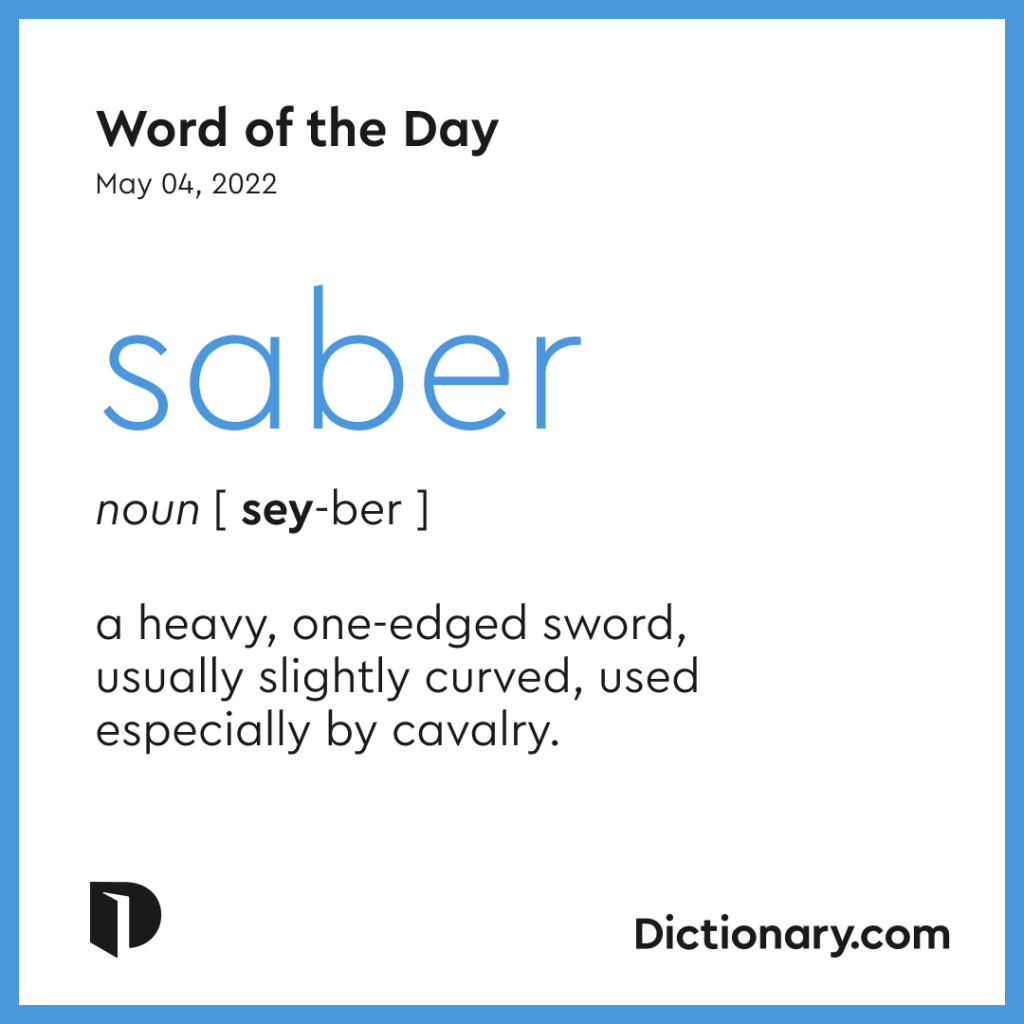WHAT IS THE ORIGIN OF SABER?
Saber “a heavy, one-edged sword” is a borrowing of French sabre, earlier sable, from German Sabel (modern Säbel). Prior to German, the term either passed through a Slavic intermediary such as Polish szabla or came directly from Hungarian szablya. Note that the sz consonant pair is pronounced as “sh” in Polish but simply as “s” in Hungarian, and the Hungarian letter pair ly is pronounced as “ee.” Though the ultimate source of szablya is uncertain, the prevailing theory is an origin in a Tungusic language; compare sele “iron” and seleme “dagger” in Manchu, an endangered language in Manchuria. The languages of the Tungusic family are predominantly spoken in Siberia, with a few members spoken in northern China. Although efforts have been made to connect the Tungusic languages to the Mongolic and Turkic families (as we learned from the recent Word of the Day yurt), and even to Japanese and Korean, any relationship among these families is inconclusive. Saber was first recorded in English in the 1670s.


You May Also Like 👇
Loading...
Tags
Word of the Day

